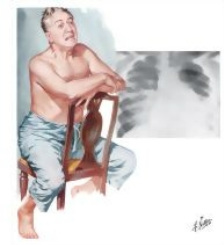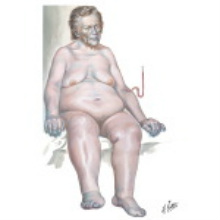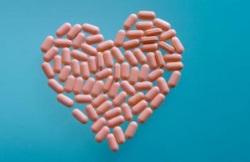Welcome to Thiazide Diuretics page!
Are you diagnosed with chronic heart failure?
Did your doctor prescribe you with thiazide diuretics? But, you dont' really know what they are or why you need them?
I recently learned about thiazide diuretics during the pharmacology class in my nursing program, and I created this web page to share helpful information I learned about thiazide diuretics and chronic heart failure.
Enjoy learning and feel free to contact me with any questions!!!
Did your doctor prescribe you with thiazide diuretics? But, you dont' really know what they are or why you need them?
I recently learned about thiazide diuretics during the pharmacology class in my nursing program, and I created this web page to share helpful information I learned about thiazide diuretics and chronic heart failure.
Enjoy learning and feel free to contact me with any questions!!!
What are Thiazide Diuretics?
Thiazide diuretics, commonly known as "water pills", are widely prescribed class of diuretics that are used to treat patients with chronic heart failure and hypertension.
Thiazide diuretics are effective at increasing urine flow, thus lowering blood volume. Decreased blood volume in the body reduces edema and congestion, which are major symptoms of chronic heart failure. When diuretics reduce fluid overload and lower blood pressure, the heart can pump out the sufficient amount of blood without working too hard. Reduced workload on heart and increased cardiac output is a ultimate goal in treatment for chronic heart failure.
Thiazide diuretics are effective at increasing urine flow, thus lowering blood volume. Decreased blood volume in the body reduces edema and congestion, which are major symptoms of chronic heart failure. When diuretics reduce fluid overload and lower blood pressure, the heart can pump out the sufficient amount of blood without working too hard. Reduced workload on heart and increased cardiac output is a ultimate goal in treatment for chronic heart failure.
What is Chronic Heart Failure?
Chronic heart failure (formerly known as congestive heart failure) is a condition in which your heart can't pump enough oxygen-rich blood to meet your body's needs. When your heart doesn't pump efficiently, blood may back up into your lungs and other tissues. Left side, right side, or both sides of heart can be affected by chronic heart failure.
Thiazide diuretics are important drugs in relieving edema and lung congestion by increasing water excretion.
Thiazide diuretics are important drugs in relieving edema and lung congestion by increasing water excretion.
Left-sided heart failure

As the ability to pump blood forward from the left side of the heart is decreased, the remainder of the body does not receive enough oxygen especially when exercising.
In addition, the pressure in the veins of the lung increases, which may cause fluid accumulation in the lung. This results inshortness of breath and pulmonary edema.
In addition, the pressure in the veins of the lung increases, which may cause fluid accumulation in the lung. This results inshortness of breath and pulmonary edema.
Causes
- Drinking too much alcohol
- Heart attack
- Heart muscle infections
- High blood pressure
- Hypothyroidism
- Impaired heart valves
- Any other desease that damages the heart muscle
Symptoms
- Shortness of breath
- Cough
- Difficulty lying down
- Fatigue, weakness, faintness
- Irregular or rapid pulse
- Palpitation
Right-sided heart failure

In right-sided heart failure, the right ventricle loses its pumping function, and blood may back up into other areas of the body, producing congestion. Congestion affects the liver, the gastrointestinal tract, and the limbs. In addition, the right ventricle may be unable to pump blood efficiently to the lungs and to the left ventricle.
Causes
- Left-sided heart failure
- Lung diseases such as chronic bronchitis and emphysema
- Congenital heart disease
- Clots in pulmonary arteries
- Pulmonary hypertension
- Heart valve disease
Symptoms
- Swelling of feet and ankles
- Distended neck veins
- Palpitation
- Fatigue, weakness



